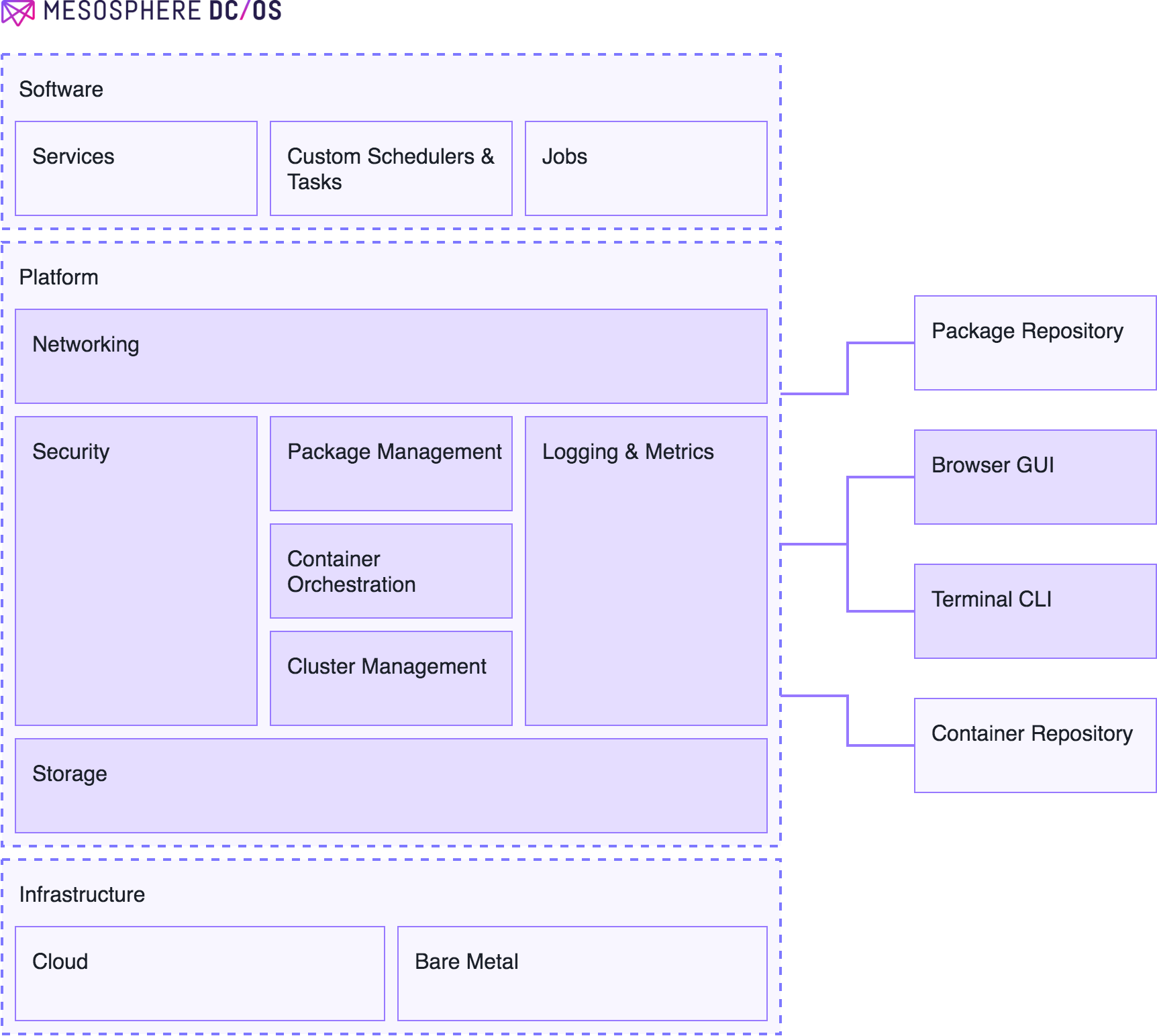The Mesosphere® Distributed Cloud Operating System (DC/OS™) is a platform for running distributed containerized software, like apps, jobs, and services. As a platform, DC/OS is distinct from and agnostic with respect to the infrastructure layer. This means that the infrastructure may consist of virtual or physical hardware, as long as it provides computing resources, storage, and networking.

Figure 1 - DC/OS architecture layers
Software layer
At the software layer, DC/OS provides package management and a package repository to install and manage several types of services: databases, message queues, stream processors, artifact repositories, monitoring solutions, continuous integration tools, source control management, log aggregators, and so forth. In addition to these packaged apps and services, you may install your own custom apps, services, and scheduled jobs.
For more information, see Task Types.
Platform layer
At the platform layer there are dozens of components grouped into the following categories:
- Cluster Management
- Container Orchestration
- Container Runtimes
- Logging and Metrics
- Networking
- Package Management
- IAM and Security Enterprise
- Storage
These components are divided across multiple node types:
- Master Nodes
- Private Agent Nodes
- Public Agent Nodes
To install DC/OS, you must first provision each node with one of the supported host operating systems. For more information, see
Infrastructure layer
At the infrastructure layer, you can install DC/OS on public clouds, private clouds, or on-premises hardware. Some of these install targets have automated provisioning tools, but almost any infrastructure can be used, as long as it includes multiple x86 machines on a shared IPv4 network.
For more information, see Installing.
External components
In addition to the software that runs in the datacenter, DC/OS includes and integrates with several external components:
Node Types
Understanding the three types of nodes…Read More
Task Types
Understanding Mesos tasks…Read More
Components
Understanding DC/OS components…Read More
Distributed Process Management
Understanding distributed process management in a DC/OS cluster…Read More
Boot Sequence
Understanding the DC/OS component services boot sequence…Read More
 DC/OS Documentation
DC/OS Documentation